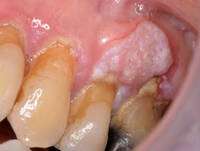MedicalResearch.com Interview with:
Stephen Freedman MDCM, MSc
Professor of Pediatrics and Emergency Medicine
Alberta Children’s Hospital Foundation Professor in Child Health and Wellness
Alberta Children’s Hospital Research Institute, Cumming School of Medicine
University of Calgary
MedicalResearch.com: What is the background for this study?
Response: During the early stages of the global 2019 coronavirus disease (COVID-19) pandemic, children represented fewer than 5% of reported cases. However, children now represent a significant percent of all new COVID-19 cases. Similarly, pediatric hospitalizations due to COVID-19, are now at an all-time high.
Although COVID-19 is generally mild in children, severe outcomes and death do occur. The risk of severe outcomes among SARS-CoV-2 infected children is poorly understood with estimates varying considerably between study designs, settings, and regions. Studies generally include large administrative databases (i.e. community based), hospitalized populations, and children admitted to the intensive care unit (ICU).
Identified risk factors for severe COVID-19 in children have included young (i.e. 1-3 months) or old (15-18 years) pediatric age group, male sex, and pre-existing medical condition. However, data from large prospective cohort studies which include children with early or mild stages of disease seeking emergency department (ED) care are lacking.
To address this knowledge gap we sought to quantify the frequency of and risk factors for severe outcomes in SARS-CoV-2 infected children enrolled in a prospective ED-based cohort study.
(more…)









 Johonniuss Chemweno
CEO of VIPStarNetwork
MedicalResearch.com: What is the mission of VIP StarNetwork?
Response: VIP StarNetwork’s mission is to expand access to healthcare services and information, especially in underserved and underprivileged communities. Our comprehensive group of health experts, leading physicians, and healthcare executives are working to create a meaningful and safe environment to ensure that patients have equitable and streamlined access to vaccines and other forms of care.
Johonniuss Chemweno
CEO of VIPStarNetwork
MedicalResearch.com: What is the mission of VIP StarNetwork?
Response: VIP StarNetwork’s mission is to expand access to healthcare services and information, especially in underserved and underprivileged communities. Our comprehensive group of health experts, leading physicians, and healthcare executives are working to create a meaningful and safe environment to ensure that patients have equitable and streamlined access to vaccines and other forms of care.













 Shuchi Anand, MD MS (she/her)
Assistant Professor in Medicine
Director, Center for Tubulointerstitial Kidney Disease
Stanford University School of Medicine
MedicalResearch.com: What is the background for this study? What are the main findings?
Response: A majority of people on dialysis who completed vaccination as of September 2021 have had a decline in antibody response to levels that would render them vulnerable to infection. Antibody response immediately after vaccination and circulating antibody response is strongly associated with risk for breakthrough after the initial vaccination series.
Shuchi Anand, MD MS (she/her)
Assistant Professor in Medicine
Director, Center for Tubulointerstitial Kidney Disease
Stanford University School of Medicine
MedicalResearch.com: What is the background for this study? What are the main findings?
Response: A majority of people on dialysis who completed vaccination as of September 2021 have had a decline in antibody response to levels that would render them vulnerable to infection. Antibody response immediately after vaccination and circulating antibody response is strongly associated with risk for breakthrough after the initial vaccination series.

